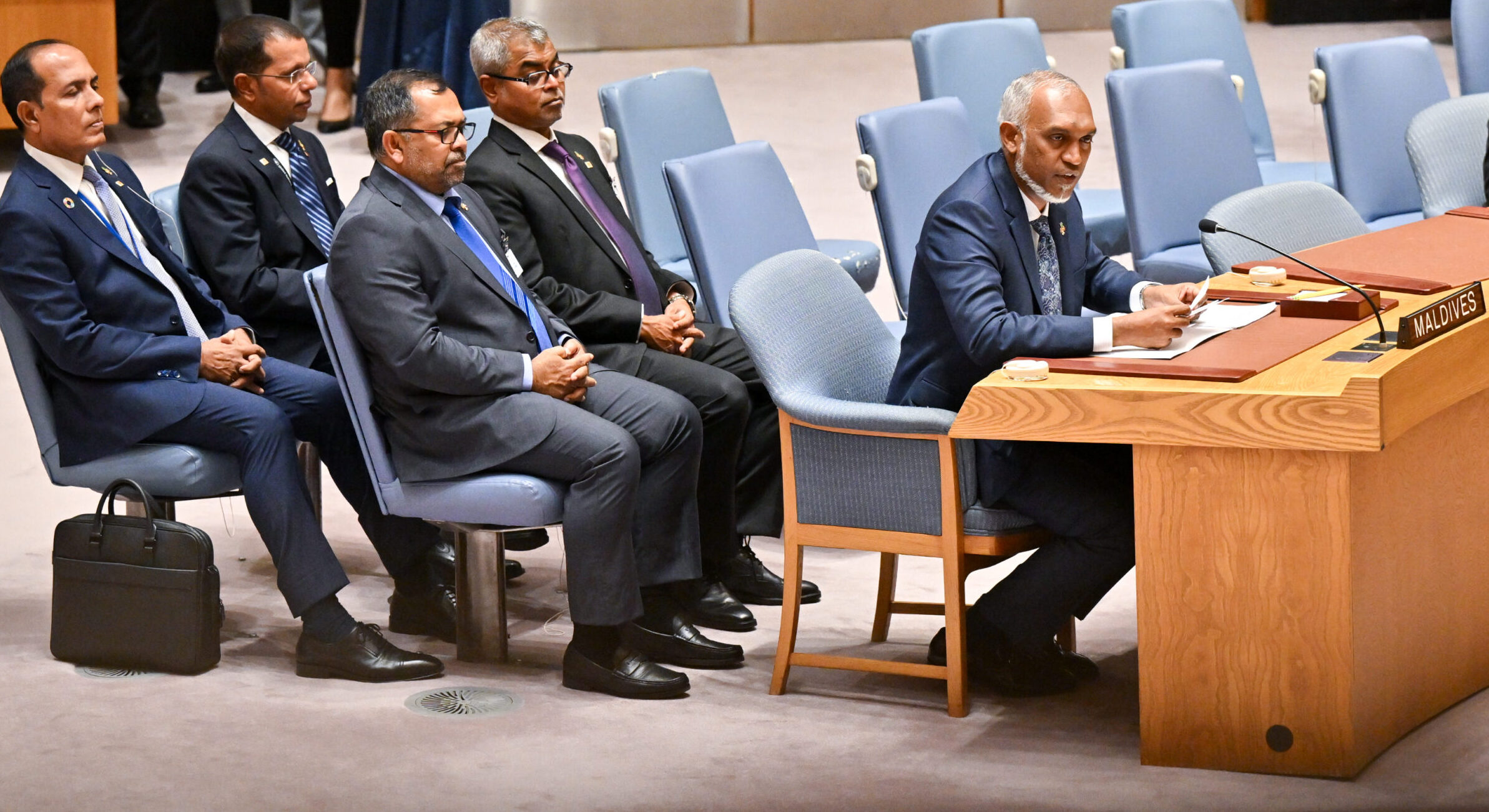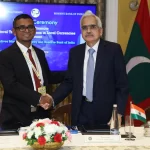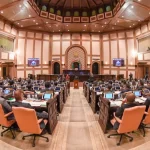NEW YORK —For the first time in history, a leader of the Maldives addressed the United Nations Security Council, with President Mohamed Muizzu delivering a stark critique of the Council’s failures and calling for significant reforms to address pressing global issues, including the ongoing war in Gaza and the broader inefficacies of the multilateral system.
“This is the first time that a Maldivian President is addressing the Security Council, in the 59 years we have been a UN member,” Muizzu began, setting the tone for a speech that was both candid and urgent. “I came to speak to you because I felt it important to personally convey to the Security Council a message from the Maldivian people… about the immense responsibility that the Council holds in maintaining global peace and security.”
Muizzu didn’t mince words when it came to the Council’s handling of international crises. He directly called out the “immense failure of this Council in giving hope to the hopeless, and salvation to the suffering.” He pointed to the war in Gaza as a prime example of this failure, stating that the Council has been “unwilling to uphold international law and put an end to” the violence.
Referencing a report from November 2022, Muizzu noted that “thirty-six UN Special Rapporteurs and Experts referred to ‘a genocide in the making’ in Gaza,” and he questioned why the Security Council had not acted. Furthermore, Muizzu highlighted the July 2023 ruling of the International Court of Justice (ICJ), which declared Israel’s occupation of Palestinian territory illegal, urging the Council to enforce the decision: “Members of this Council are expected to work to enforce findings by the UN’s own principal judicial organ.”
Muizzu framed his speech around the theme of leadership, questioning whether the most powerful members of the Security Council were setting the right example. “Powerful members of this Council, is this really the world you want to lead us into?” he asked, emphasizing that the credibility of the global order was at stake. “The declining trust in the Security Council is rooted in the lack of equal representation, accountability, and transparency,” he said, before adding, “We need change. And we need it now.”
One of Muizzu’s key proposals was for the Security Council to become more representative of the broader UN membership, particularly Small Island Developing States (SIDS) and African nations. “Small Island Developing States are one-fifth of UN membership. Our voices matter. Our perspectives matter,” he asserted. A permanent rotating seat for SIDS, he argued, would be “a historic step towards equitable representation.”
President Muizzu took a hard stance on the failure of the global rules-based order, which he argued was established by the very members of the Security Council. In a searing critique, he lamented that the principles and institutions designed to uphold justice were now unraveling amid the destruction caused by ongoing conflicts.
“It was member states of this Council who established the principles, institutions and architecture of a rules-based order… A world order based on justice,” Muizzu reminded the Council. However, he warned that this system is “crumbling under the rubble of destroyed homes, hospitals, and schools… disintegrating under the weight of the bodies of innocent civilians in Gaza and Lebanon.”
Muizzu painted a vivid picture of the decay, stating that this once robust framework of international order is now “stained with the blood of those whose very existence is supposed to be a symbol of a civilized world order—aid workers, UN staff, journalists.” He also highlighted the risks journalists from Palestine, Lebanon, and Al Jazeera take to expose the harsh realities of war, many of whom have been killed or silenced. He cautioned that without their efforts, “we risk returning to a world where children and babies die in silence, perish in darkness.”
He did not stop there. Muizzu also called for the abolition of the veto power, which he argued has “paralyzed” the Security Council from addressing Israel’s “genocidal war against the Palestinian people.” In a blunt statement, Muizzu declared: “The veto continues to enable the massacre of innocent people. So, let us ‘kill’ the veto.”
The President also turned his attention to non-traditional security threats, including climate change, pandemics, and technological advancements in warfare. “If the Security Council is not more flexible and agile in effectively responding to these new and emerging threats, it runs the risk of being buried in the dust,” he warned. He proposed the establishment of a mechanism to allow direct input from civil society, regional bodies, and experts to ensure that the Council stays attuned to real-world developments.
Muizzu concluded his speech with a reminder of the Maldives’ long-standing commitment to the United Nations. “We have always placed our faith in the multilateral system and the United Nations. As a guarantor of our sovereignty. Of our equality. We are not questioning the value of the UN,” he said. However, he made it clear that the Maldives, and by extension the global community, demands more than “empty rhetoric and half-hearted gestures.”
His final words were a direct appeal to the Council’s conscience: “We deserve better. We demand better.”
Muizzu’s address was a bold call for reform, and whether the Security Council will heed that call remains to be seen. His speech underscored the mounting frustrations of smaller nations and those affected by Israel’s genocide and global conflicts, as they push for a more inclusive and responsive multilateral system.












